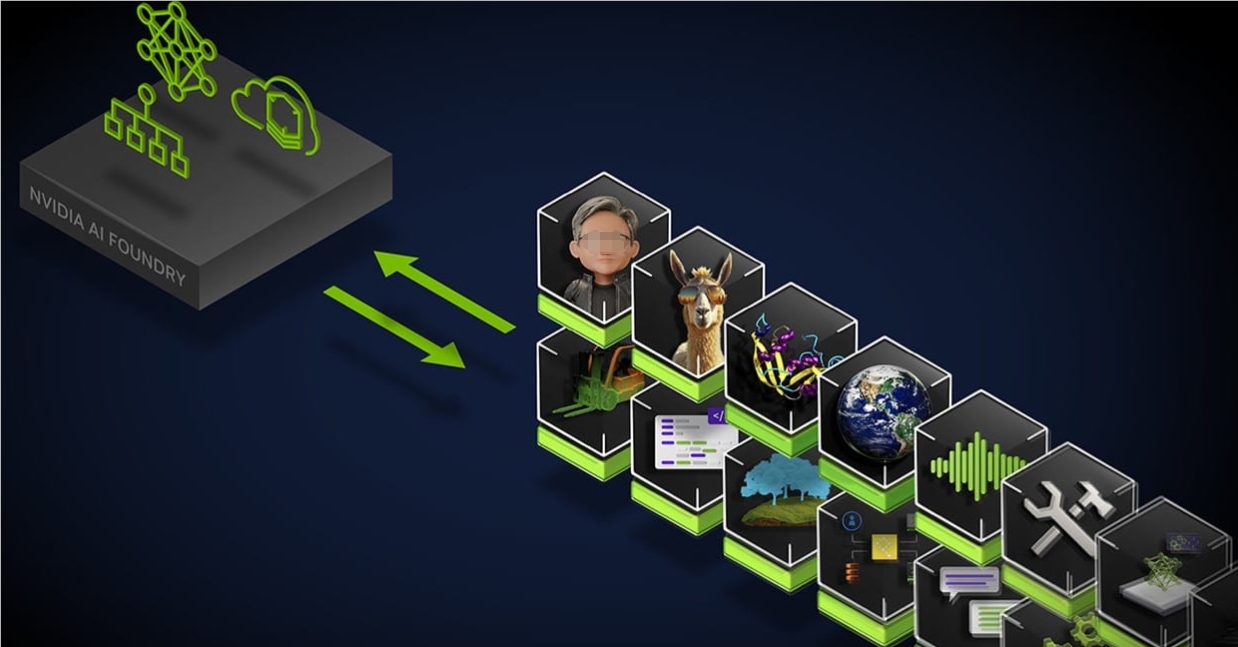Recently, Nvidia has quietly launched its new AI service – AI Foundry, a move that could spark a wave of enterprises customizing AI models. This service aims to help companies develop and deploy large language models tailored to their specific needs, responding to the rapid market changes with higher accuracy and control.

AI Foundry combines Nvidia's hardware, software tools, and expertise to help companies develop custom open-source models for specific business needs, such as the recently released Llama3.1 by Meta. As enterprises increasingly seek to leverage generative AI technology while controlling their own data and applications, the launch of AI Foundry is well-timed.
Nvidia claims that customizing these open-source models can significantly enhance their performance. For instance, the accuracy of a customized model can be improved by nearly 10 percentage points. AI Foundry not only provides a large number of pre-trained models but also offers high-performance computing resources and model customization evaluation through Nvidia's DGX Cloud and NeMo toolkit. Additionally, Nvidia's AI expert team will provide professional guidance.
In addition to AI Foundry, Nvidia has introduced NIM (Nvidia Inference Microservices), a service that packages custom models into containerized, API-accessible formats, simplifying the deployment process. NIM marks a significant breakthrough in AI model deployment for Nvidia, showcasing the company's accumulation from years of research and development.
The timing of this release is also subtle, coinciding with the release of Meta's Llama3.1 and against the backdrop of growing concerns about AI safety and governance. By providing a service that allows enterprises to create and control their own AI models, Nvidia may be able to meet the advanced AI needs of businesses while avoiding the risks of using public, general-purpose models.
However, the widespread deployment of custom AI models may also bring challenges, such as the fragmentation of AI capabilities across industries and the difficulty of maintaining consistent AI safety and ethical standards. As the competition in the AI industry intensifies, Nvidia's AI Foundry will be a crucial step in its future strategy for the enterprise AI market.
Official blog: https://blogs.nvidia.com/blog/ai-foundry-enterprise-generative-ai/
### Key Takeaways:
📊 **Customization Enhances Accuracy**: Nvidia's AI Foundry can significantly improve the accuracy of AI models, with customizations increasing accuracy by nearly 10%.
🛠️ **New Deployment Method**: The NIM service packages custom models into API-accessible, containerized formats, simplifying the deployment process.
📅 **Special Release Timing**: This release coincides with the launch of Meta's Llama3.1, aiming to meet the custom needs of enterprises for advanced AI models.







